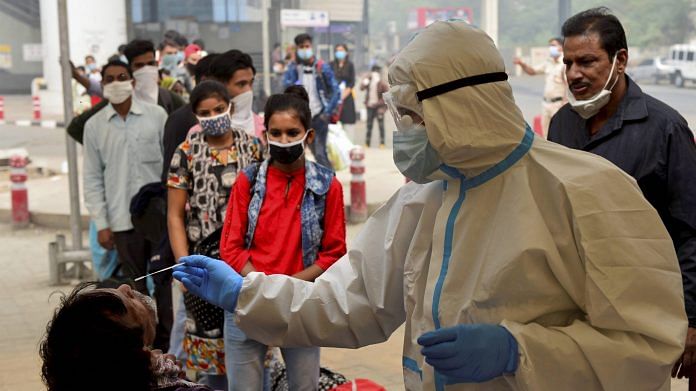New Delhi: The Delhi High Court on Thursday said the rate at which the number of COVID-19 positive cases was rising, the AAP government should have been alive to the fact that testing through Rapid Antigen (RAT) method was not serving the purpose and the answer lay in increasing RTPCR tests.
The observation by a bench comprising Justices Hima Kohli and Subramonium Prasad came after perusing the number of tests conducted between November 9 to November 17 during which period the number of RAT were more than 2.98 lakh, while those by RTPCR and other similar modes was around 1.53 lakh.
The high court noted that between November 9 to November 18, the maximum number of RTPCR tests per day was mostly below 20,000 while testing by RAT had reached 40,000 per day.
“This itself reflects the need to increase testing by RTPCR,” the bench said.
RT/PCR, short for Reverse Transcription Polymerase Chain Reaction, is a laboratory technique widely used in the diagnosis of genetic diseases and to measure gene expression in research.
The bench said it has been time and again emphasising that number of asymptomatic persons in the city was huge and with the rate of positivity slowly climbing to 14 per cent as on date, “Delhi government should have been alive to the fact that testing through RAT was not serving the purpose”.
During the hearing, Delhi government, represented by senior advocate Sandeep Sethi and additional standing counsel Satyakam, told the court that a new testing kit — Feluda — was being considered as a testing option as it gives much more accurate results (than RAT) within a short time of collecting samples.
However the kit was yet to be launched, they told the court.
The fifth phase of sero survey would not be carried out anytime soon as Delhi was reeling under third wave of COVID-19 infection, it also told the bench during hearing of a PIL by advocate Rakesh Malhotra seeking increase in the COVID-19 testing numbers in the national capital and getting speedy results.
Also read: ‘Lockdown fatigue’ behind Delhi’s third Covid wave, experts call for behavioural change






